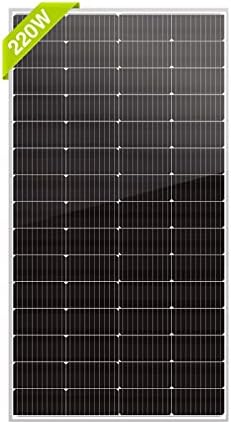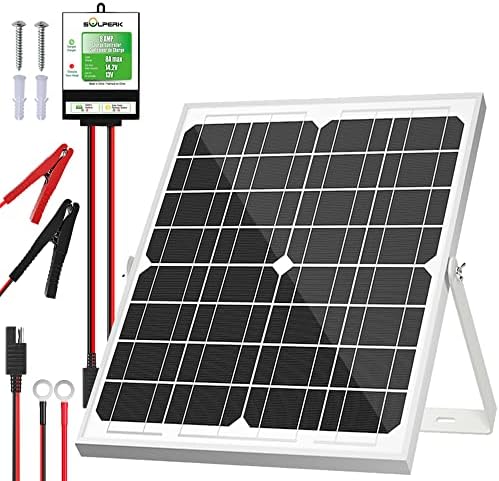Demystifying Solar Panel Costs: What You Need to Know
Picture this: a bright sunny day, birds chirping, and clean energy flowing into your home. As someone who has experienced the incredible benefits of living off the grid, I can’t help but share my enthusiasm for solar panels. They have truly revolutionized my life, providing not only financial savings but also a sense of environmental responsibility. In this article, I aim to demystify the costs associated with solar panels, answering your burning questions and equipping you with the knowledge needed to embark on your own renewable energy journey.
Understanding the Initial Investment
When it comes to solar panel costs, the initial investment can seem daunting. However, it’s crucial to recognize that this is a long-term investment that pays for itself in the years to come. Solar panels are durable, with an average lifespan of 25-30 years, and require minimal maintenance. By investing in solar panels, you not only reduce or eliminate your monthly electricity bills but also contribute to a greener future.
The cost of solar panels depends on several factors, including the size of your property, energy consumption, local regulations, and available incentives. On average, solar panels can cost between $10,000 and $30,000. While this may seem substantial, it’s crucial to consider the numerous financial benefits that come with harnessing the power of the sun.
Financial Benefits of Solar Panels
1. Long-Term Savings: One of the primary advantages of solar panels is the significant reduction in your electricity bills. With a solar panel system, you generate your own electricity, reducing your reliance on the grid. Over time, this results in substantial savings.
2. Return on Investment: Solar panels are a smart investment, quickly paying for themselves. On average, homeowners save upwards of $1,000 per year on their electricity bills. In most cases, you can expect a return on investment within 5-7 years.
3. Increased Property Value: Homes equipped with solar panels have a higher market value. According to a study conducted by the Lawrence Berkeley National Laboratory, homes with solar panels sell for an average of 4.1% more compared to similar non-solar properties.
4. Tax Credits and Incentives: The government offers attractive tax credits and incentives for those who choose to install solar panels. These incentives vary from state to state but can offset a significant portion of the initial costs.
Pro Tips:
– Research and compare available incentives in your region, as they can greatly impact your overall investment.
– Consider the potential increase in property value when calculating the long-term financial benefits of solar panels.
Factors Affecting Solar Panel Costs
Now that we’ve established the financial benefits, let’s break down the factors that affect solar panel costs:
1. Size of the System: The size of the solar panel system you require is dependent on your energy consumption. A larger system will naturally cost more than a smaller one. It’s essential to assess your energy needs accurately to determine the appropriate system size.
2. Quality of Solar Panels: When investing in solar panels, it’s crucial to prioritize quality. While cheaper panels may seem tempting, they might not generate as much electricity or have the same durability as high-quality panels. Opting for reputable brands may have a higher upfront cost but will yield greater long-term benefits.
3. Installation Costs: The installation process involves various factors such as labor, mounting equipment, and electrical connections. It’s advisable to get quotes from multiple solar panel installers to ensure competitive pricing.
4. Local Regulations and Permits: Different states and municipalities have varying regulations and permitting processes. These requirements may add to the overall cost of installing solar panels. It’s crucial to research the local regulations and factor them into your costs.
Pro Tips:
– Obtain multiple quotes from reputable installers to find the best price for your solar panel system.
– Take into account potential permit costs and research local regulations before commencing your solar panel installation.
Making the Solar Transition Affordable
Understanding the costs associated with solar panels is just the first step; finding ways to make them more affordable is equally important. Here are some strategies to help you navigate the financial aspect:
1. Leasing and Power Purchase Agreements (PPAs): If the initial investment is too substantial, leasing or entering into a Power Purchase Agreement (PPA) with a solar provider can be viable options. These allow you to enjoy the benefits of solar energy without the need for a large upfront payment. With leasing, you pay a fixed monthly amount, while with PPAs, you purchase energy generated by the panels at a lower rate compared to traditional electricity.
2. Financing Options: Many financial institutions offer loans specifically designed for solar panel installations. These loans often have favorable interest rates and flexible repayment terms, making solar energy accessible to a wider audience.
3. DIY Approach: For the handy individuals out there, a DIY approach can significantly reduce costs. However, it’s essential to have a thorough understanding of the installation process and ensure compliance with local regulations. A DIY solar panel system should only be pursued if you possess the necessary knowledge and skills.
Pro Tips:
– Consider leasing or a Power Purchase Agreement if the initial cost of purchasing solar panels is prohibitive.
– Research financing options and compare interest rates to find the most affordable solution for your situation.
Embrace the Sun, Embrace a Greener Future
Demystifying solar panel costs is an important step toward embracing renewable energy. While the initial investment may seem overwhelming, the long-term financial benefits and environmental impact far outweigh the costs. By reducing your carbon footprint, increasing property value, and enjoying substantial savings, solar panels offer a promising future for both your pocket and the planet.
As someone who has experienced the positive change solar panels can bring, I encourage you to embark on this journey toward a more sustainable and independent lifestyle. Take advantage of the available incentives and financial options, and soon you’ll be basking in the sun’s rays while enjoying the sound of your electricity meter standing still. The sun is shining; it’s time to seize the opportunity and embrace a greener future.
Pro Tips:
– Conduct a thorough financial analysis considering long-term savings, increased property value, and available incentives before deciding to invest in solar panels.
– Monitor available financing options regularly, as interest rates and terms may change over time.



